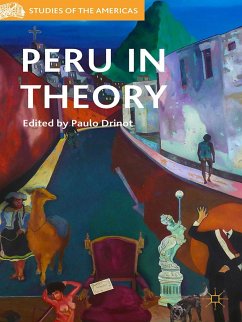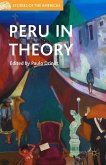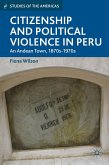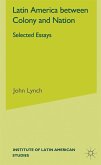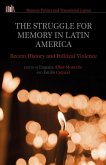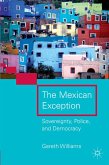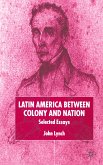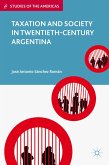Chapters establish a productive dialog between Peru and social science theory, focusing on insituional weakness and exclusion (economic, social, gendered, racial).
Can 'theory' teach us anything about Peru? Can 'Peru' teach us anything about theory? The chapters in this volume explore these questions by establishing a productive dialogue between Peru and theory. Focusing on institutional weakness and economic, social, gendered, racialized, and other forms of exclusion key issues in recent social scientific inquiry in Peru - the contributors to this volume assess the extent to which the analytical frameworks of a number of social and cultural theorists can inform, and, at the same time, be informed by, Peru as a case study.
Can 'theory' teach us anything about Peru? Can 'Peru' teach us anything about theory? The chapters in this volume explore these questions by establishing a productive dialogue between Peru and theory. Focusing on institutional weakness and economic, social, gendered, racialized, and other forms of exclusion key issues in recent social scientific inquiry in Peru - the contributors to this volume assess the extent to which the analytical frameworks of a number of social and cultural theorists can inform, and, at the same time, be informed by, Peru as a case study.
"Drinot's Peru in Theory is something of a tour d' force in the field of Peruvian studies, bringing together a range of new scholars to plumb the theories of the great theorists in order to illuminate various aspects of what sociologist José Matos Mar referred to as Peru Problema. ... Peru in Theory stands out as a shining example of what can be done with a similar approach for other country-specific cases." (Peter F. Klaren, Journal of Latin American Studies, Vol. 48 (1), February, 2016)
"In this superb collection, ten authors bring to bear the work of theorists ranging from Michel Foucault to Judith Butler to rethink two frustratingly pervasive characteristics of Peru: inequality and institutional flimsiness. This is not only an indispensableexamination of Peru, but also a wide-ranging and creative dialogue about the power and limitations of theory." - Charles Walker, University of California, Davis, USA
"Thanks to Paulo Drinot for this book. I learned a great deal about Peru, about the relevant theorists, and, best yet, how to continue the process of better integrating theoretical universals with empirical particulars. It will teach Peru specialists and social theorists alike." - Miguel Angel Centeno, Princeton University, USA
"In this superb collection, ten authors bring to bear the work of theorists ranging from Michel Foucault to Judith Butler to rethink two frustratingly pervasive characteristics of Peru: inequality and institutional flimsiness. This is not only an indispensableexamination of Peru, but also a wide-ranging and creative dialogue about the power and limitations of theory." - Charles Walker, University of California, Davis, USA
"Thanks to Paulo Drinot for this book. I learned a great deal about Peru, about the relevant theorists, and, best yet, how to continue the process of better integrating theoretical universals with empirical particulars. It will teach Peru specialists and social theorists alike." - Miguel Angel Centeno, Princeton University, USA

